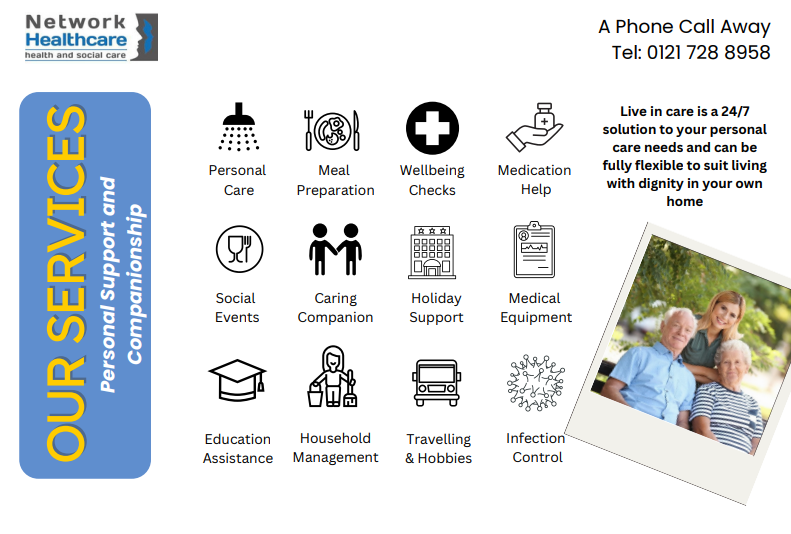
Latest Live in Care News
Comparison of Direct Employment and Managed Service Providers for Live in Care
Posted around 6 months ago •
Or copy link

Introduction
Hiring a full-time live-in carer can be a great option for homeowners who need some help with personal care, such as washing, dressing, eating and drinking, or companionship, such as socialising, hobbies and activities. However, there are different ways of arranging and paying for this type of care, and each has its own advantages and disadvantages. This guide aims to compare two common methods of hiring a live-in carer: direct employment and using a managed service provider.
- Direct Employment
Direct employment means that you or the person you are caring for hire a carer directly, without using an agency. You are responsible for finding, interviewing, and selecting a suitable carer, as well as managing their contract, pay, and working conditions. You also have to comply with various legal and tax obligations as an employer, such as checking the carer’s right to work, deducting tax and national insurance, and providing insurance cover. You may also need to arrange backup care in case of emergencies or holidays.
The main benefit of direct employment is that you have more control and flexibility over the care you receive. You can choose a carer who matches your preferences, needs, and personality, and you can decide how they provide care and support. You may also save some money by avoiding agency fees and paying the carer directly.
The main drawback of direct employment is that it can be time-consuming and stressful to handle all the administrative and legal aspects of being an employer. You may also face some risks and challenges, such as finding a reliable and qualified carer, dealing with any disputes or complaints, and ensuring the quality and safety of the care.
- Managed Service Provider
A managed service provider is a type of agency that is registered and regulated by the Care Quality Commission (CQC) or equivalent bodies in Scotland and Wales. They provide and direct the care and support that you or the person you are caring for receive from a live-in carer. They are responsible for finding, training, and supervising a suitable carer, as well as creating and reviewing a care plan that meets your needs and preferences. They also handle all the contractual, financial, and legal aspects of the care, such as paying the carer, providing insurance cover, and ensuring compliance with relevant standards and regulations. They also provide backup care in case of emergencies or holidays.
The main benefit of using a managed service provider is that they take care of all the practical and administrative details of the care, leaving you with more time and peace of mind. You can also rely on their expertise and experience to ensure the quality and safety of the care, as they are subject to regular inspections and monitoring by the CQC or equivalent bodies. You can also access their support and advice if you have any questions or concerns about the care.
The main drawback of using a managed service provider is that you may pay more for the care, as the agency charges a fee for their services, which may vary depending on the level and type of care you need. However, peace of mind, by using regulated professionals is assured.
For a confidential, free consultation, call one of our Quality Care Advisers on 0121 728 8958, who will be happy to guide you through the maze of questions you are probably struggling with right now.

